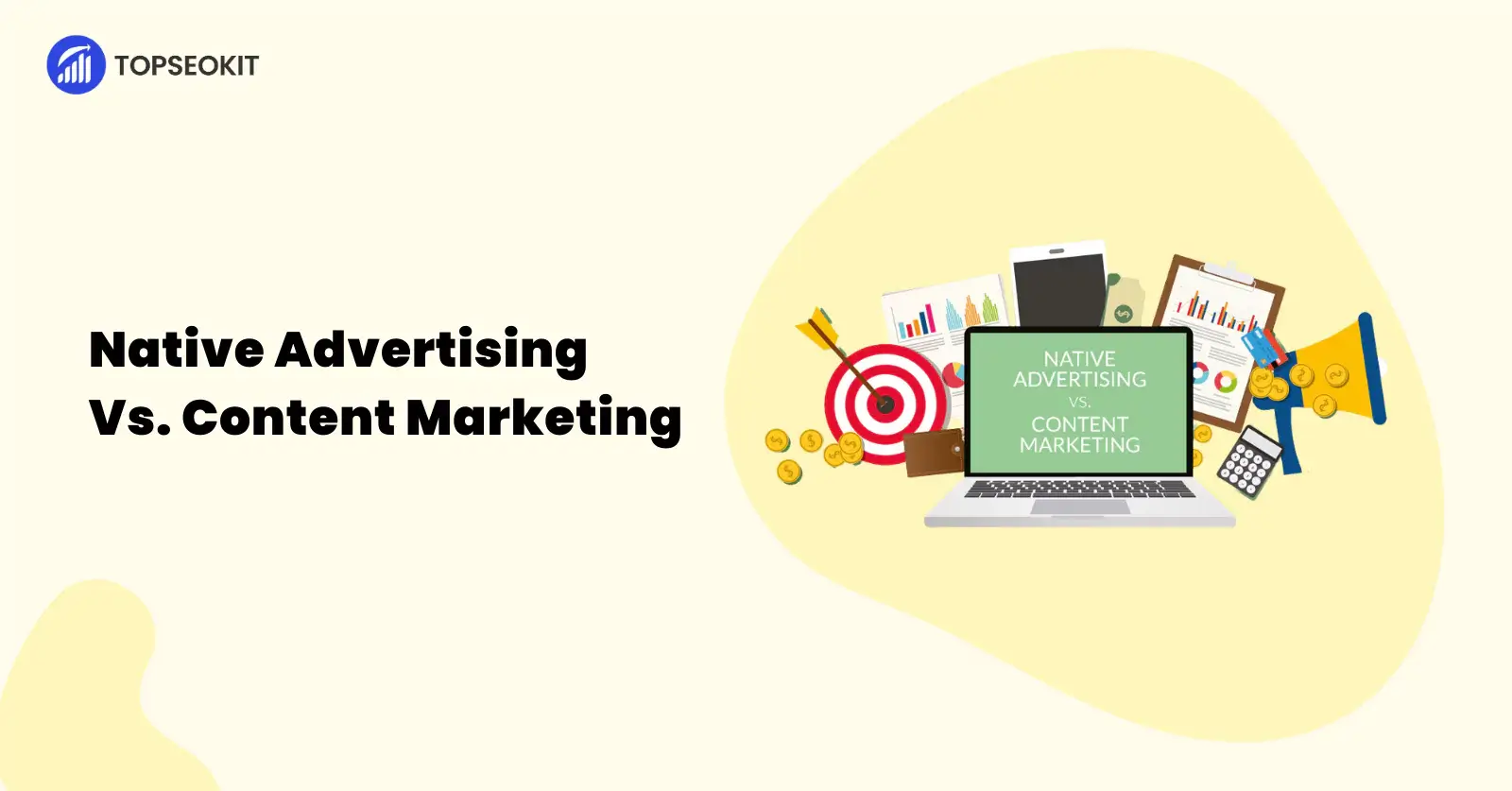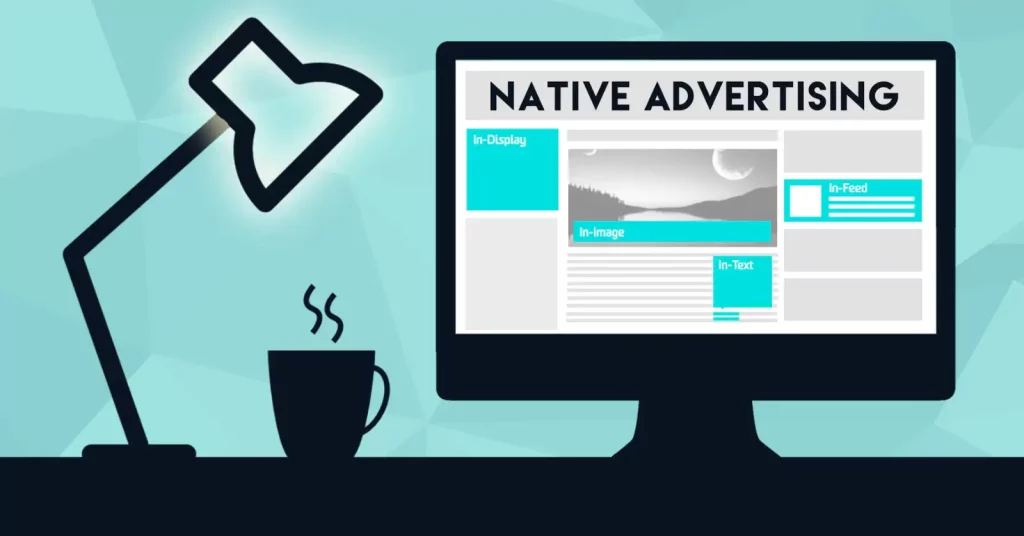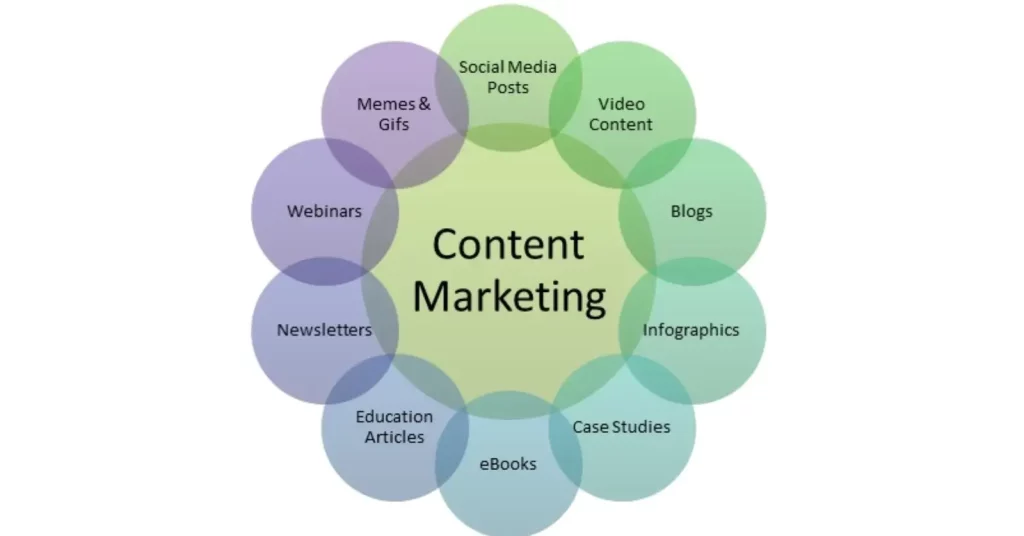
Native Advertising Vs. Content Marketing | What’s The Difference?
Native advertising is like a sponsored advertisement, while content marketing is creating informative, valuable content.
Both native advertising and content marketing are valuable strategies with similar goals of increasing sales, traffic, and engagement. However, there is a difference; native advertising tries to approach straight and distribute their content. They choose a specific approach, whereas content marketing works with a much bigger marketing strategy.
For most businesses and marketers, native advertising vs. content marketing is used interchangeably. So keep in mind that both of these content have different capabilities.
Sometimes brands get confused between native advertising and content marketing as both contents are potent tactics. So if you want to understand how to harness the strategy, keep reading the article until the end.
Native Advertising Vs. Content Marketing: Main Differences
To understand the significant difference between both content, you must read about each in detail.
Native Advertising:
Any type of ad, including a piece of text, image, or video, should match the platform on which it will be featured. If you want to advertise a video of any new product, it will be featured as a sponsored video on the videos page, just like YouTube.
In recent years native advertising is gaining popularity due to the rise of browser ad blockers.

More than 500 million times the world’s most popular extension has been downloaded, according to AdBlock Plus and Hubspot. Apart from that, in the same report, about 67% of the respondents confessed as long as the ad is not annoying, they won’t mind watching it.
Usually, native ads aren’t blocked by blockers; only banner ads and block-out pop-ups are blocked. This explains how many native ads have become so common.
Native Advertising Examples:
Here are some of the popular examples of native advertisement;
1. Native Ads On Twitter: Promoted Tweets And Trending Topics
Especially on Twitter, ads are designed to mix up with the website. These ads are placed on the location so they can be mostly viewed. Although people can see these ads between trending topics and in user feeds, these ads are available for specific certain tweets.
2. Native Ads On YouTube: Suggested Videos And Commercials
Although YouTube first started the ads as a free platform, YouTube has now added commercials from a few seconds of video to unskippable ads in every video. You can see these ads between videos set on an auto-play or if the video is too long. As a marketer, you also have an “Up Next” option in the auto-plays section.
Content Marketing:
The main aim of both native advertising and content marketing is to create awareness and reach maximum customers. But as long-term advertisement tactics, content marketing aims to convert potential customers.
Also, the native advertising, content marketing also has ads in the form of videos, text, or images. However, some businesses share the content rather than featuring it on other websites—usually, native advertising content is placed on a pay-to-play system.

But content marketing is the platform where content has more and ranks higher in the search engine. It is easy to make this content valuable for the client and customers. As different types of tutorials, resources, and tips are provided to them.
Content Marketing Examples:
Here are some of the popular examples of Content Marketing;
1. Content Marketing In The New York Times: Virtual Reality Journalism
In the New York Times, content marketing is about long articles with many colorful photos. But in 2015, when VR began to take off, it was a massive opportunity for New York Times. They try to reformat the old story and convert it into an immersive virtual experience.
2. Content Writing: Disney Parks Blog
This Disney Parks blog completely differed from other ventures like video games or films. Disney parks offer their blog website featuring various factors like event updates, guides, and behind-the-scenes.
Disney never promotes discreet ads with each of their ride, whereas they find different ways to make people excited about visiting the place.
Moreover, they try to show creativity, including tips like what you should pack for your upcoming Disney parks visit, small clips from the international festival, and Disney Springs festival.
What Is Best For Business? Native Advertising Or Content Marketing
The primary question asked by business leaders is which one to choose. The content which has a higher ROI is considered as best? And which will be best for investment?
If you consider ROI, both of them benefit your ROI. But apart from that, considering the advantages is both contents separately is better for understanding. These different advantages will let you decide which one is best for you.
Native Advertising Advantages:
- These are best for brands that aim to increase awareness or new brands.
- Best performance on social media or search engines.
- Best to stand out from the competitors because of having algorithms to focus on organic and authentic content appearing on social feeds.
- You can avail of native ads on mobile, desktop, or tablet. You can prepare your ad with the right tool.
- You can make your ad match the website aesthetics by customizing the size and display of your ad.
Content Marketing Advantages:
- It can boost your search engine optimization.
- If you use the right keyword and format your page correctly, it will have a higher rank than your competitors.
- It will help you avoid keyword suffering and favor blogs.
- Content marketing is best at generating traffic and conversation.
- Make customers more receptive while the brand is on valuable focus.
- Make your brand look more authoritative and credible.
Goals Of Native Advertising And Content Marketing:

The main aim of both contents is the same but has slightly different purposes. Here are the goals of each content separately.
Native Advertising:
- Increase the value of your brand.
- Guaranteed to bring new customers to your website.
- Create product awareness among the public.
Content Marketing:
- Create brand awareness.
- Make your website appear more efficient for people.
- Enhance the knowledge of users about the product.
For a long-term objective, content marketing is about creating product awareness. Its main target is dragging more potential customers for the product.
Like all other service providers, content marketing also goes through different stages, and there is no end. On the other hand, we have native advertising, which is more likely expert in showing business.
Keep in mind native advertising doesn’t have any long-term objective. It just places the relatable content or ad to attract the customer’s focus. But it will always appear on the page that matches the portal or website.
FAQs:
For both B2B and B2C advertising Native is the valuable marketing channel. It doesn’t matter whether you aim to increase brand awareness or conversation; you can use the great opposite of native advertising to achieve your marketing goal. It will let you connect with the targeted audience in the user’s chosen format.
The advertisement which looks and acts the same as the platform where it is uploaded is called native advertising. All of these ads blend with the venue and start appearing more like the content extension and less like the actual advertisement.
Mostly the ads by native advertisements are more likely to create exciting and useful content produced to drive information for the readers. But they never directly promote or make the sales pitch.
Conclusion:
Native marketing is a part of content marketing, but content marketing doesn’t need native advertising. If you implement them correctly, they will work for you perfectly.
Both native advertising and content marketing have different goals, and each works best. But in native advertising vs. content marketing, it has been observed that content marketing has more advantages.
Read More;
Let’s dive in! Get started for free
